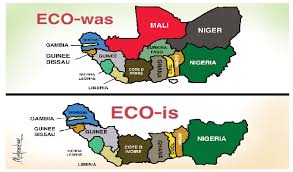
In a historic shift for West Africa’s political landscape,the Economic Community of West African States (ECOWAS) has begun relocating key institutions from Mali,Burkina Faso,and Niger — nations that formally withdrew from the bloc earlier this year to form the Alliance of Sahel States (AES).
During an extraordinary session in Accra,ECOWAS Council of Ministers chair and Nigerian foreign affairs minister,Yusuf Maitama Tuggar,acknowledged the withdrawal as a “difficult moment,” but emphasized the need to adapt. “It was never our wish to deliberate on the withdrawal of member states,” Tuggar said,adding but “we must now adapt and chart a forward-looking path.” The Council reviewed contingency plans,including the administrative relocation of ECOWAS programs and institutions and challenges to the free movement of goods and people. Formal memoranda outlining legal and diplomatic frameworks are expected soon.
Meanwhile,the AES continues to assert its independence. From renaming Bamako’s ECOWAS Square to Confederation of Sahel States (AES) Square,to introducing an AES passport,the bloc has taken bold steps to reinforce its sovereignty and signal its final separation. Trade restrictions and the expulsion of ECOWAS officials further underline the widening rift. Yet Tuggar remained optimistic: “Our unity has been tested before—and we emerged stronger. We will do so again.” As ECOWAS marks its 50th anniversary,the crisis may prove a turning point — either deepening fragmentation or laying foundations for renewed regional cooperation.
United News - unews.co.za